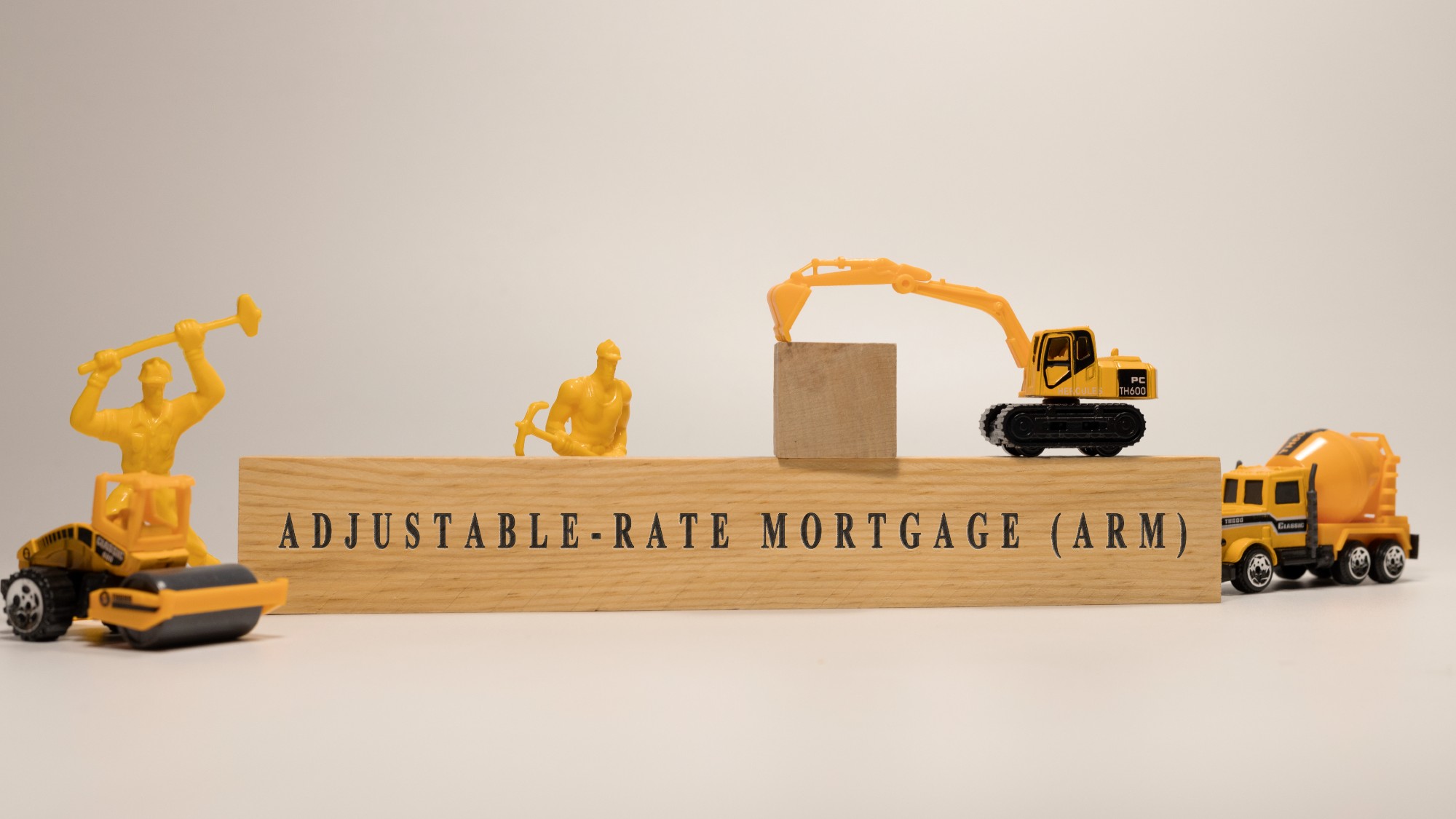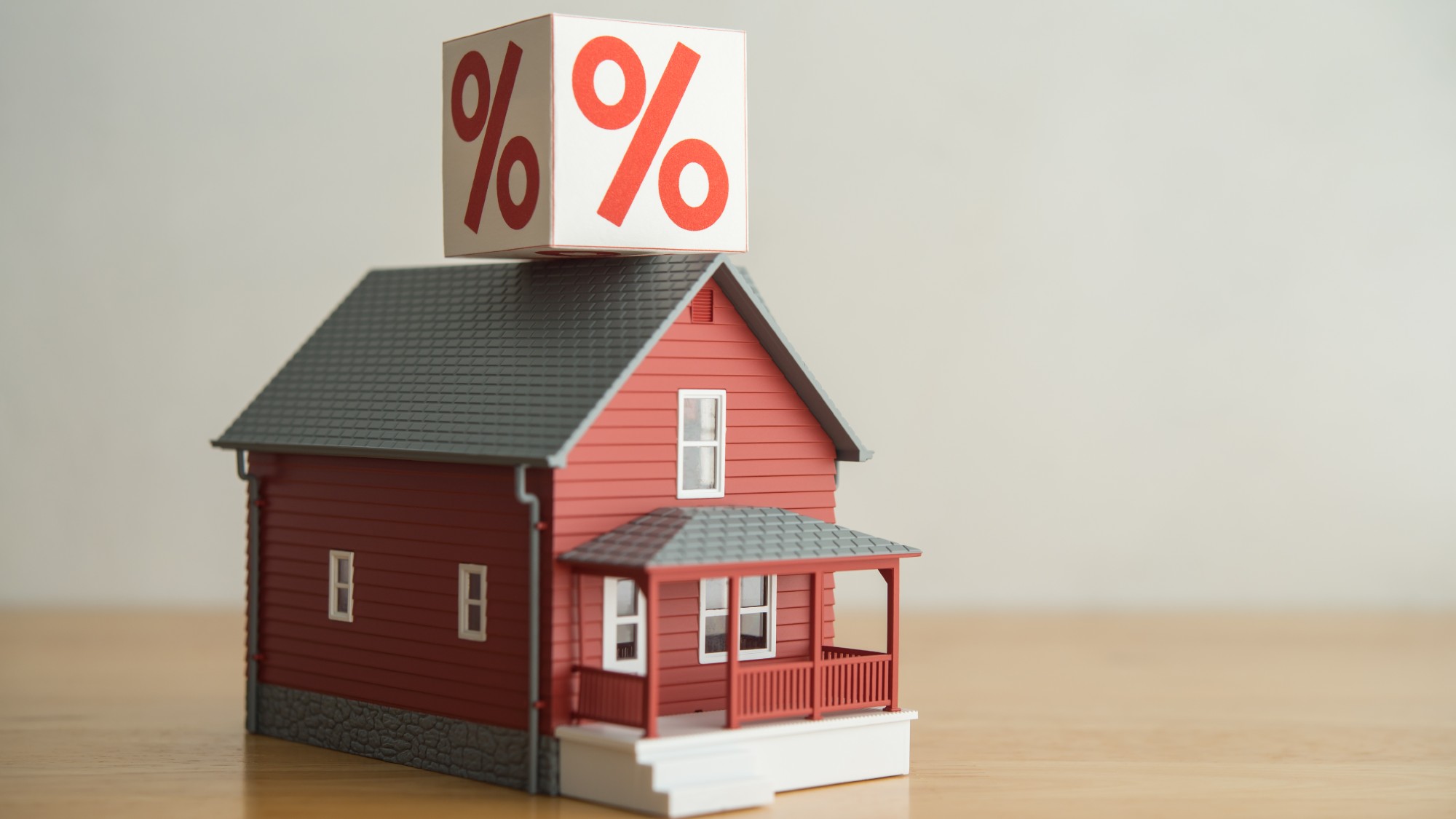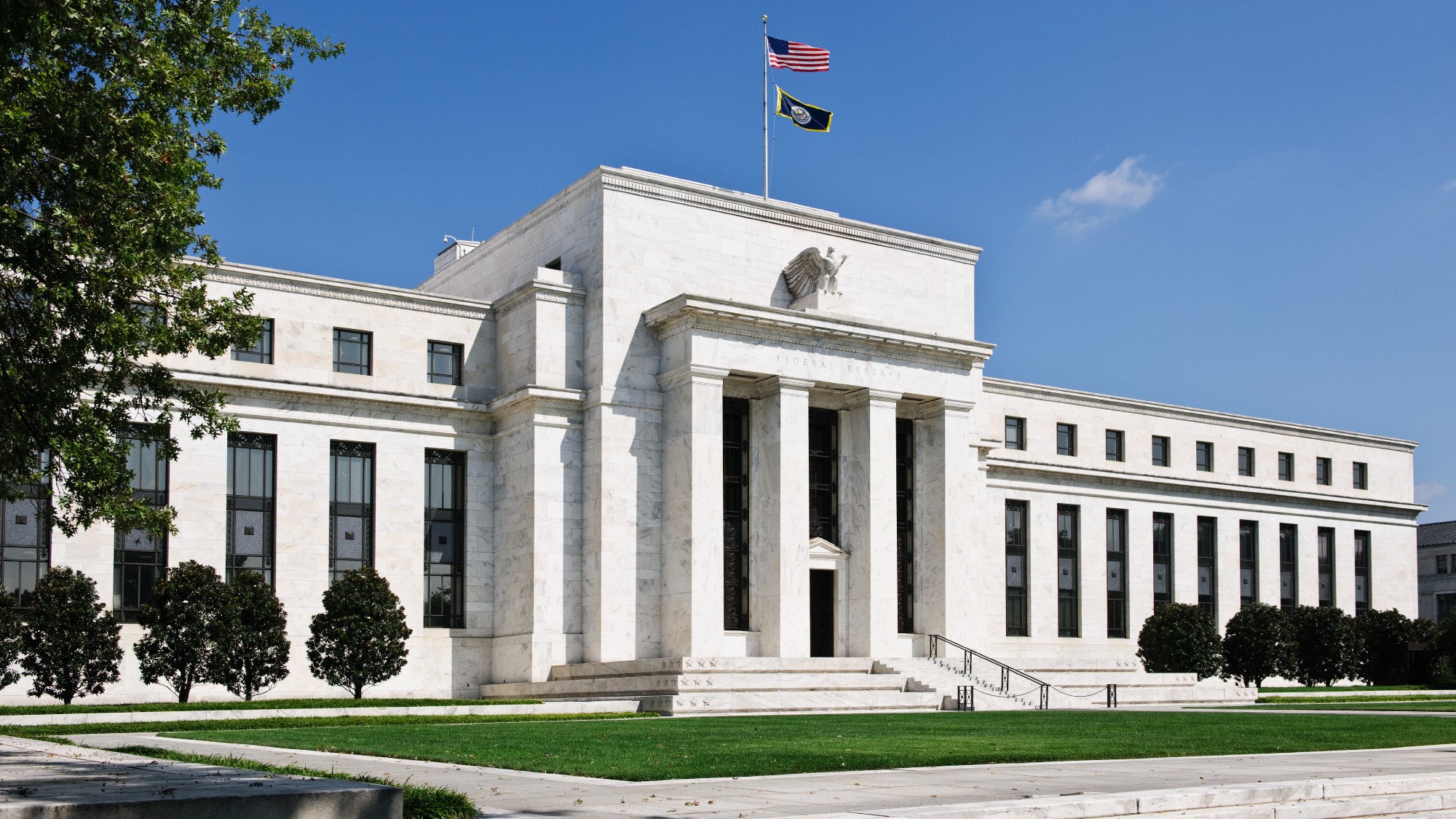Fixed-rate or tracker mortgages: which is best as rates rise?
The mortgage market is in flux as inflation remains high

A free daily email with the biggest news stories of the day – and the best features from TheWeek.com
You are now subscribed
Your newsletter sign-up was successful
As mortgage rates hit 15-year highs, deciding whether to opt for a fixed-rate mortgage or a tracker in the hopes that rates eventually drop can be conundrum.
Mortgage rates rose rapidly last year, said This Is Money, “thanks to uncertain economic conditions in the UK and the fallout from the disastrous mini-budget in September”.
But they surpassed even their mini-budget peak in early July at 6.66%. The average rate on two-year fixed mortgages was 6.78% as of 18 July.
The Week
Escape your echo chamber. Get the facts behind the news, plus analysis from multiple perspectives.

Sign up for The Week's Free Newsletters
From our morning news briefing to a weekly Good News Newsletter, get the best of The Week delivered directly to your inbox.
From our morning news briefing to a weekly Good News Newsletter, get the best of The Week delivered directly to your inbox.
Mortgage prices are rising due to “volatile swap rates”, explained comparison website Moneyfacts. This is driven by “stubbornly high” inflation, and the Bank of England may need to continue raising interest rates.
The uncertainty means the millions of borrowers coming off cheap fixed-rate deals of recent years face a “fraught choice” between locking in a more expensive fixed-rate or opting for a tracker, said the Financial Times.
Do you take a short fix and “hope that interest rates will fall in the near future”? asked George Nixon in The Times, or do you accept that higher rates are “here to stay” with a long-term product?
Another option is to go with a tracker deal that moves in line with the Bank of England’s base rate, and wait for a “hint as to what the future holds”, Nixon added.
A free daily email with the biggest news stories of the day – and the best features from TheWeek.com
What is a fixed-rate mortgage?
Borrowers on a fixed-rate mortgage pay the same amount each month during the deal term, usually two, three, five or 10 years, providing “absolute certainty”, said NerdWallet.
This can be a “big help” with budgeting, said broker London & Country Mortgages, as your monthly repayments won’t suddenly rise if the Bank of England increases interest rates.
On the flip side, if interest rates fall, added MoneyHelper, “you won’t benefit” and could be paying over the odds compared with new mortgage pricing.
Watch out for early-repayment charges if you want to move product before your deal ends, the financial website added, and get ready to remortgage two or three months before your contract expires to avoid moving onto your lender’s standard variable rate, “which is usually higher”.
What is a tracker mortgage?
A tracker mortgage typically follows the Bank of England (BoE) base rate, so “when the external interest rate goes up or down, the interest you pay on your tracker mortgage deal will change as well,” said MoneySuperMarket.
For example, if a tracker product were to be priced at 1.5% over a base rate of 0.5%, the amount of interest you would need to pay on your monthly repayment would be 2%. But if the base rate increased to 1%, your rate would go up to 2.5%. “Equally, if the base rate fell, so would the rate you pay,” MoneySuperMarket added.
Trackers “are best when interest rates are low”, said OnlineMortgageAdvisor, but the base rate is currently at a 15-year high. However, some trackers are capped, offering protection when rates rise. But the same often applies when rates are falling, so you “might not benefit from super-low rates” if your tracker has a “collar”.
“There’s no right answer for everyone,” the site concluded, so consider your circumstances to weigh up the pros and cons of a tracker.
Should I choose a fixed-rate or tracker mortgage deal?
A lot depends on where you think interest rates will go in the short and long term
What you can afford, your plans for the future (such as if you want to move), and the current mortgage market will play a “key part” in helping you decide between a tracker and a fixed rate, said Money To The Masses.
Tracker mortgages tend to be cheaper than fixed rates, explained The Times Money Mentor, and now could be a “good time” to consider one if you can afford to see your monthly repayments rise if rates continue to be increased.
If rates fall early next year, said the i newspaper, “you may end up paying more on a tracker in the short term and then paying less later on”.
While fixed-rate pricing has been rising, these products provide “valuable peace of mind” that your mortgage payments will be the same each month during the deal period, said Rest Less.
Borrowers favouring fixed rates are opting for shorter-term two-year deals rather than five-year deals, said Which?, as they hope to remortgage onto a cheaper deal in 2025 “when interest rates have potentially calmed”.
This is a “risky approach”, the consumer watchdog warned. While rates will eventually peak, “it’s anyone’s guess as to when this could happen.”
Marc Shoffman is an award-winning freelance journalist, specialising in business, property and personal finance. He has a master’s degree in financial journalism from City University and has previously written for FTAdviser, ThisIsMoney, The Mail on Sunday and MoneyWeek.
Marc Shoffman is an NCTJ-qualified award-winning freelance journalist, specialising in business, property and personal finance. He has a BA in multimedia journalism from Bournemouth University and a master’s in financial journalism from City University, London. His career began at FT Business trade publication Financial Adviser, during the 2008 banking crash. In 2013, he moved to MailOnline’s personal finance section This is Money, where he covered topics ranging from mortgages and pensions to investments and even a bit of Bitcoin. Since going freelance in 2016, his work has appeared in MoneyWeek, The Times, The Mail on Sunday and on the i news site.
-
 Antonia Romeo and Whitehall’s women problem
Antonia Romeo and Whitehall’s women problemThe Explainer Before her appointment as cabinet secretary, commentators said hostile briefings and vetting concerns were evidence of ‘sexist, misogynistic culture’ in No. 10
-
 Local elections 2026: where are they and who is expected to win?
Local elections 2026: where are they and who is expected to win?The Explainer Labour is braced for heavy losses and U-turn on postponing some council elections hasn’t helped the party’s prospects
-
 6 of the world’s most accessible destinations
6 of the world’s most accessible destinationsThe Week Recommends Experience all of Berlin, Singapore and Sydney
-
 Six ways to boost your finances in 2026
Six ways to boost your finances in 2026The Explainer It’s not too late to make a new year’s resolution to finally get organised money-wise
-
 Could a part-and-part mortgage help you on to the property ladder?
Could a part-and-part mortgage help you on to the property ladder?The Explainer Combining repayment and interest-only mortgages could become more popular as part of a push towards more flexible lending
-
 Why it’s important to shop around for a mortgage and what to look for
Why it’s important to shop around for a mortgage and what to look forThe Explainer You can save big by comparing different mortgage offers
-
 What are portable mortgages and how do they work?
What are portable mortgages and how do they work?the explainer Homeowners can transfer their old rates to a new property in the UK and Canada. The Trump administration is considering making it possible in the US.
-
 What’s an adjustable-rate mortgage and what are the risks?
What’s an adjustable-rate mortgage and what are the risks?The Explainer Buyers are increasingly willing to take the gamble of a changing rate
-
 How will Fed rate cuts affect the housing market?
How will Fed rate cuts affect the housing market?the explainer An anticipated series of Federal Reserve cuts could impact mortgage rates
-
 What to do if you want to move but don't want to give up your low mortgage rate
What to do if you want to move but don't want to give up your low mortgage ratethe explainer 30-year mortgage rates are currently averaging 7% — and homeowners who secured rates closer to 3% during the pandemic are reluctant to sell their homes
-
 What is the Federal Reserve and what does it do?
What is the Federal Reserve and what does it do?The explainer The decisions made by the United States' central banking system have very real economic effects